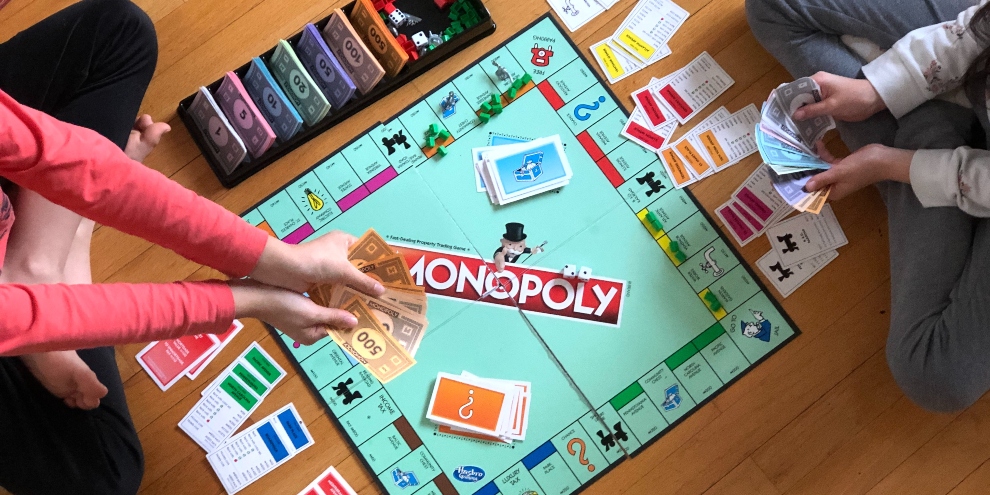Did you know that only 17 states in the United States require high school students to take a personal finance course? With financial literacy being such a crucial life skill, it’s important to find creative ways to teach kids about money. That’s where board games come in. They offer a hands-on and enjoyable way for children to learn about money management, decision-making, and financial responsibility. But which board game is the best at teaching kids about money? Stay tuned as we explore the top contenders and uncover the key lessons they impart.
Allowance Game: Ages 5-11
The Allowance Game, designed for children ages 5-11, offers an engaging and interactive way for kids to learn about money management skills. Playing the Allowance Game has several benefits, including teaching children how to handle money responsibly and make smart financial decisions. By earning and budgeting their allowance, kids learn the value of saving, spending, and even giving to others. The game also fosters healthy money habits by encouraging players to set goals and make decisions based on their financial priorities. Through the Allowance Game, children develop financial awareness and gain practical experience managing money, which can set them up for long-term financial success. To enhance the teaching of financial awareness, parents can provide tips such as discussing the importance of saving, setting realistic goals, and encouraging open communication about money. By incorporating these strategies, the Allowance Game becomes an effective tool for teaching children about money management and helping them develop the skills necessary for a secure financial future.
Monopoly: Ages 8
Monopoly, recommended for ages 8 and up, is a classic board game that offers an interactive and educational way for children to learn about money management and strategic thinking. Through gameplay, Monopoly teaches financial concepts such as budgeting, investing, and making financial decisions. The benefits of playing board games like Monopoly for financial education are significant. They provide engaging and interactive learning experiences for kids and adults alike, promoting critical thinking and decision-making skills. By playing Monopoly, children can build financial awareness and responsibility from an early age, learning the value of money and the importance of making wise financial choices. Monopoly encourages players to strategize, negotiate, and plan ahead, fostering skills that are essential for financial success in the real world. By participating in these engaging and interactive learning experiences, children can develop a deep understanding of money management concepts that will serve them well throughout their lives. Monopoly is an excellent tool for teaching financial literacy and instilling good money habits from an early age.
PayDay: Ages 8
After exploring the educational benefits of Monopoly for financial education, let’s now turn our attention to another board game that teaches money management skills: PayDay, recommended for ages 8 and up. PayDay provides a fun and interactive way for kids to learn about managing finances. Similar to Monopoly, players in PayDay move around the board, encountering various financial situations along the way. They earn a monthly salary, pay bills, make deals on property, and even have the opportunity to earn passive income. This game not only teaches kids about the importance of budgeting and making wise financial choices, but it also introduces them to concepts like real estate investments and passive income, which are valuable lessons for their future financial success. PayDay goes beyond digital platforms and provides a hands-on experience that helps kids understand the real-life implications of their financial decisions. By playing PayDay, children can develop a solid foundation in money management and gain the necessary skills to navigate the financial challenges they may face in life.
Cashflow for Kids: Ages 8
‘Cashflow for Kids: Ages 8’ is a board game that offers a hands-on and engaging way for children to learn valuable money management skills. This game focuses on teaching financial decision-making skills, the importance of saving and budgeting, and the concept of assets and liabilities. It also introduces kids to the concept of building passive income strategies and developing a mindset for financial success.
The game encourages players to make financial decisions by providing them with opportunities to invest in assets, pay off debts, and manage their cash flow. Through gameplay, children learn how their choices impact their financial situation and develop critical thinking skills.
One of the key lessons in Cashflow for Kids is the importance of saving and budgeting. Players are encouraged to set financial goals, save money, and create a budget to manage their expenses. This helps them develop responsible money habits and understand the value of delayed gratification.
Additionally, the game teaches kids about assets and liabilities. They learn to differentiate between assets that generate income and liabilities that result in expenses. This understanding lays the foundation for building wealth and making smart financial decisions in the future.
Cashflow for Kids also emphasizes the importance of building passive income strategies. Players learn how to generate income through investments and business ventures, teaching them the concept of financial independence.
The Game of Life: Ages 8
‘The Game of Life: Ages 8’ is a classic board game that provides children with an interactive and educational experience focused on making financial decisions and understanding the consequences of their choices. This game is designed to teach financial responsibility, smart money decisions, financial planning for kids, building wealth and success, and money management skills. In ‘The Game of Life: Ages 8’, players navigate through various life stages, making choices that impact their finances, such as going to college, getting a job, buying a house, and starting a family. They learn about earning income, paying bills, managing expenses, and investing. The game also introduces unexpected events and challenges, teaching kids how to adapt and make wise financial decisions. By playing ‘The Game of Life: Ages 8’, children develop valuable skills that will benefit them in real life, such as budgeting, saving, and planning for the future. This game provides a fun and engaging way for kids to learn about money management and prepare for financial success.
Charge Large: Ages 12
Charge Large: Ages 12 is a strategic board game that provides older children with an opportunity to learn about financial management and entrepreneurship. This game focuses on the importance of financial planning, teaching teens about budgeting, strategies for saving and investing, building wealth at a young age, and developing money management skills. Through gameplay, players are introduced to the concepts of budgeting their income, making strategic investment decisions, and exploring different avenues for generating wealth. By engaging in the game’s challenges and making decisions based on financial goals, players gain practical experience in managing their money and understanding the consequences of their financial choices. Charge Large: Ages 12 offers a fun and interactive way for teenagers to learn about real-world financial scenarios, preparing them for future financial success. By mastering these money management skills at a young age, players can develop lifelong habits that will serve them well in their personal and professional lives.
Acquire: Ages 12
Acquire: Ages 12 is a strategic board game that provides older children with an engaging and educational experience in financial management and entrepreneurship. Here are some key points about Acquire:
- Strategies for winning Acquire:
- Analyze the market and identify potential mergers and acquisitions.
- Invest in growing companies and strategically place tiles to maximize profits.
- Balance risk and reward by diversifying your portfolio and adapting to changing market conditions.
- Plan ahead and anticipate your opponents’ moves to gain a competitive edge.
- Benefits of playing Acquire for financial literacy:
- Develops critical thinking and decision-making skills.
- Teaches the importance of research and analysis in making investment decisions.
- Promotes understanding of stock markets, mergers, and acquisitions.
- Builds knowledge of business operations and financial management.
- How Acquire teaches investment and business skills:
- Players learn to evaluate the value of different companies and make investment decisions accordingly.
- Acquire introduces concepts like stock trading, market dynamics, and strategic planning.
- It provides a hands-on experience of running a business and making financial decisions.
- Tips for teaching financial concepts through Acquire:
- Discuss the impact of different strategies on financial outcomes.
- Encourage players to analyze the strengths and weaknesses of companies before investing.
- Emphasize the importance of long-term planning and adapting to market changes.
- Facilitate discussions on risk management and the trade-offs between growth and stability.
Acquire is an excellent game for teaching teens and adults about mergers and acquisitions, investment strategies, and business management. Its combination of strategic gameplay and financial concepts makes it a valuable tool for developing financial literacy skills.

















